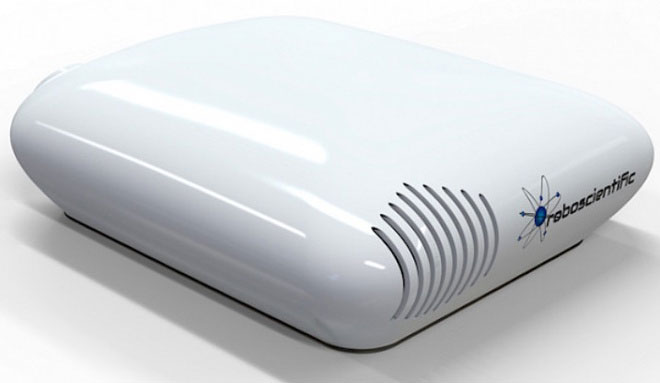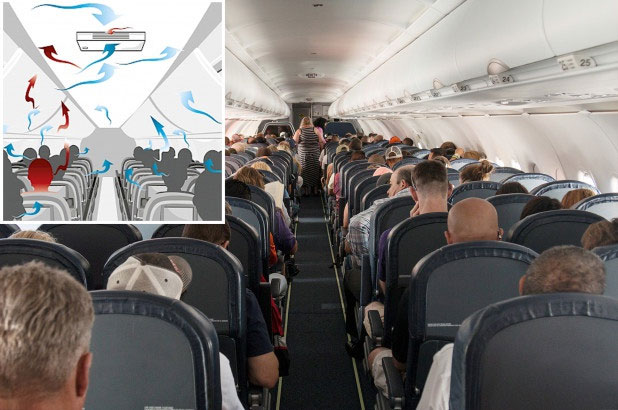In the second trial, the Covid-19 detector developed by Robo Scientific accurately identified 100% of infected individuals in just 15 minutes through their scent.
This device is called the Covid-19 Room Monitor. It can be installed in indoor environments to “sniff out” the scent components of individuals infected with Covid-19.
With a claimed accuracy of 98-100%, this model is expected to facilitate quicker detection of Covid-19 patients in enclosed spaces such as airplane cabins, classrooms, and offices.

The device helps detect Covid-19 infection through scent from Robo Scientific. (Photo: Robo Scientific).
According to the New York Post, the scent produced by the metabolic processes of individuals infected with the SARS-CoV-2 virus will be recorded by the device. The scent traces can be detected even in asymptomatic individuals, allowing this screening system to identify patients earlier and prevent widespread virus transmission.
The device will periodically sample the air and automatically check whether individuals in the room are infected with Covid-19. Air sampling occurs in enclosed spaces for 15-30 minutes. If it detects digital traces related to the virus, the device will automatically alert the responsible person via SMS or Wi-Fi.
Robo Scientific is also researching a personal testing device with similar technology, which can detect Covid-19 through breath. This testing process also occurs automatically, taking just a few minutes from breath sampling to result output. Similar to the olfactory capabilities of dogs, the Robo Scientific Monitor has high sensitivity and recognizes the presence of digital scent traces based on the company’s sensors.

The device can provide rapid test results in just 15 minutes. (Photo: Robo Scientific).
Tests conducted by researchers from the London School of Hygiene and Tropical Medicine (LSHTM) and Durham University on clothing showed that the sensors could differentiate between clothing worn by infected and healthy individuals. This indicates that the bodies of patients infected with the SARS-CoV-2 virus produce a distinctive scent.
The product from Robo Scientific is estimated to cost around $5,000. During the first testing day, the average specificity of the device was 98%, meaning the false positive rate for this testing method is low. Meanwhile, the average sensitivity was 99%, indicating a low risk of false negatives from the device.
On the second testing day, the sensors achieved a sensitivity and specificity of 100%. This indicates that the device can detect Covid-19 infections more accurately than current testing methods.



















































